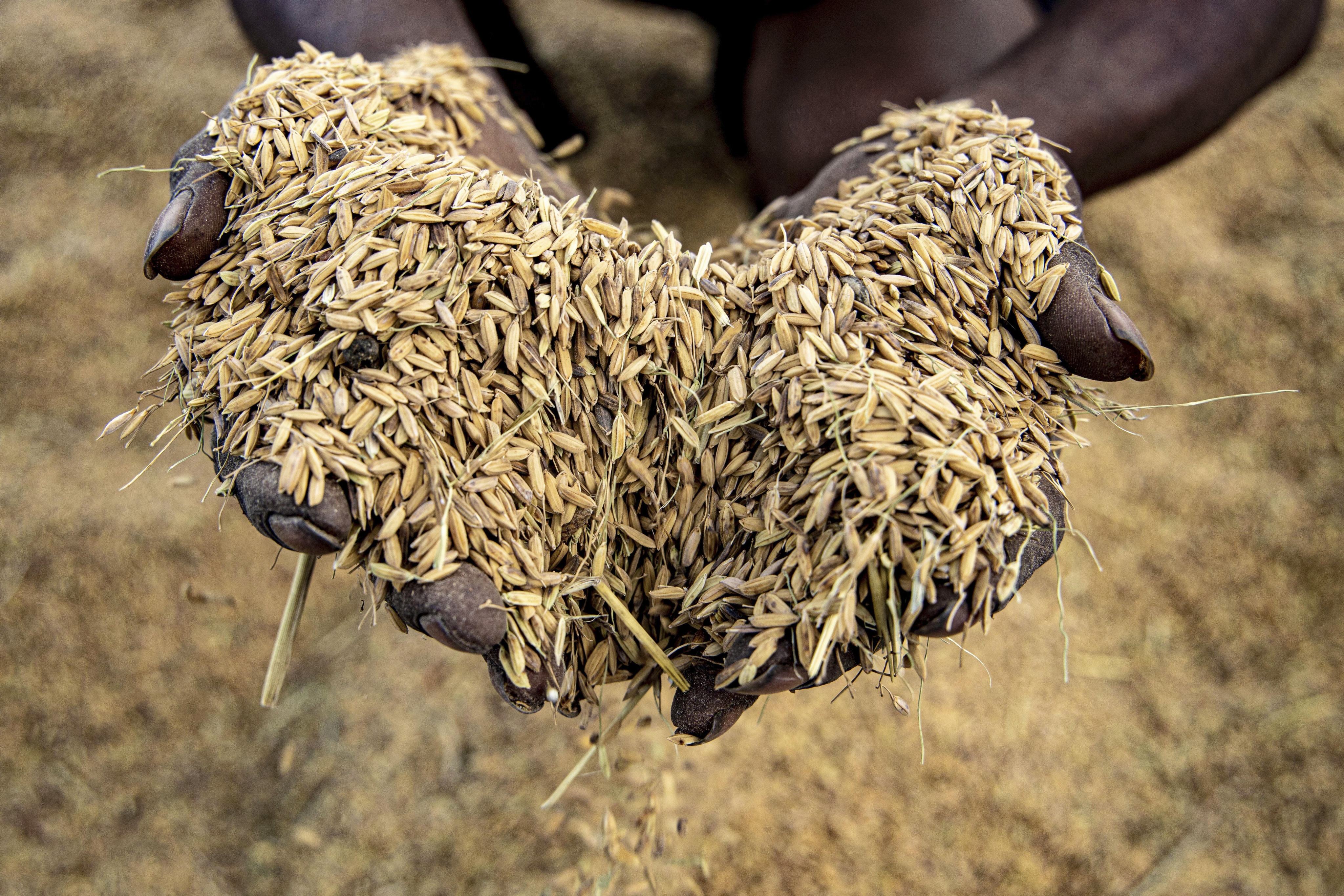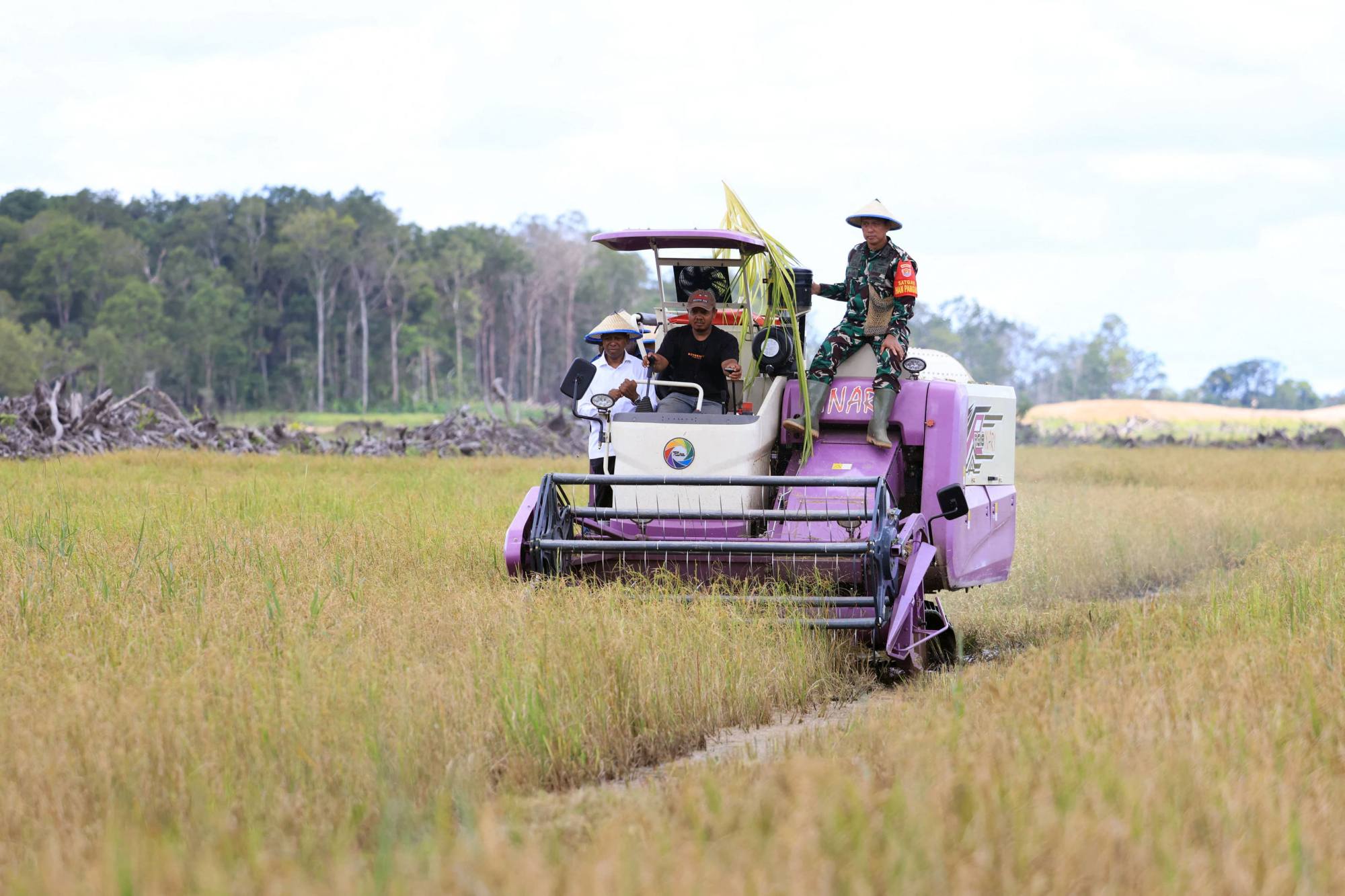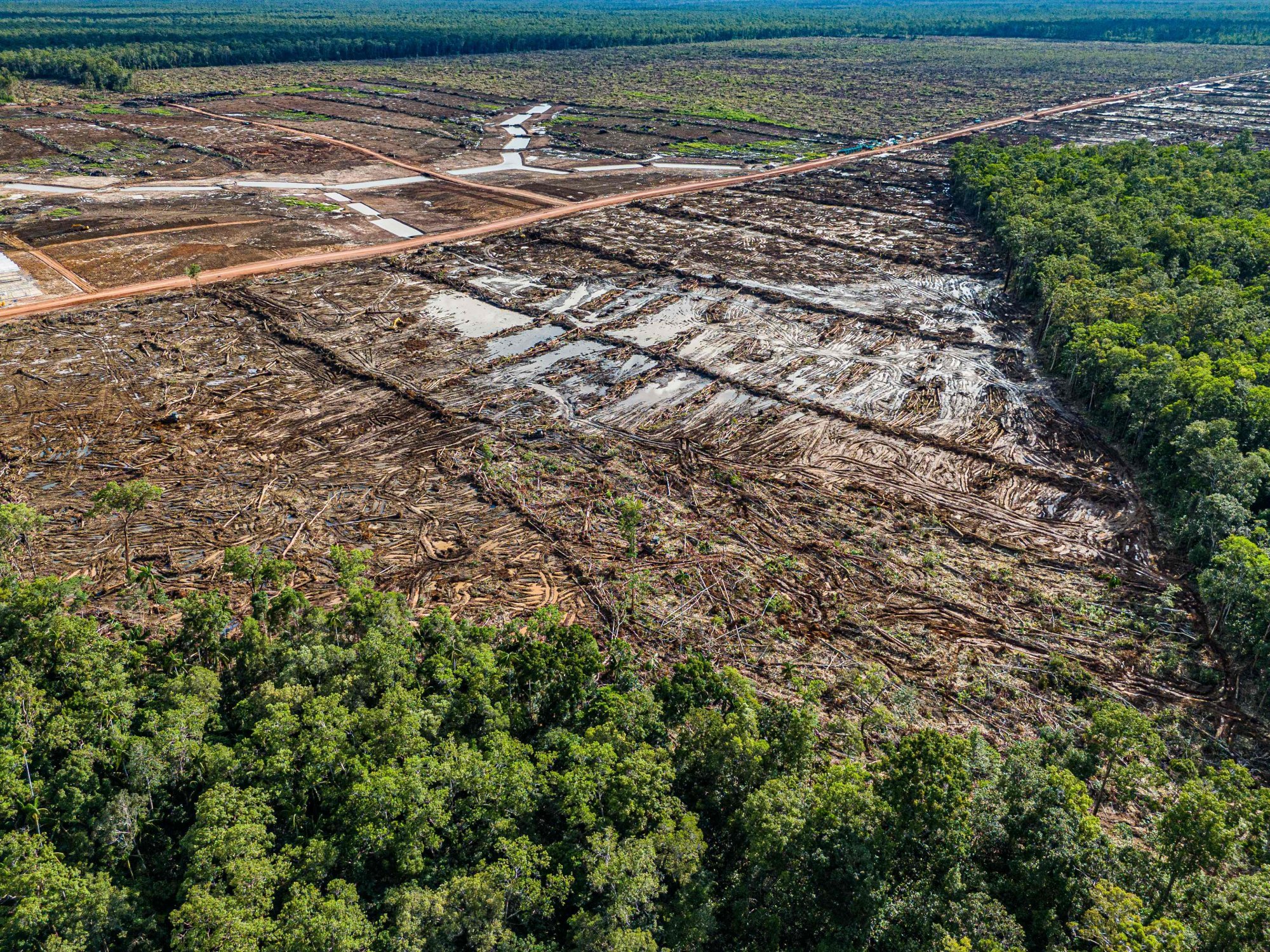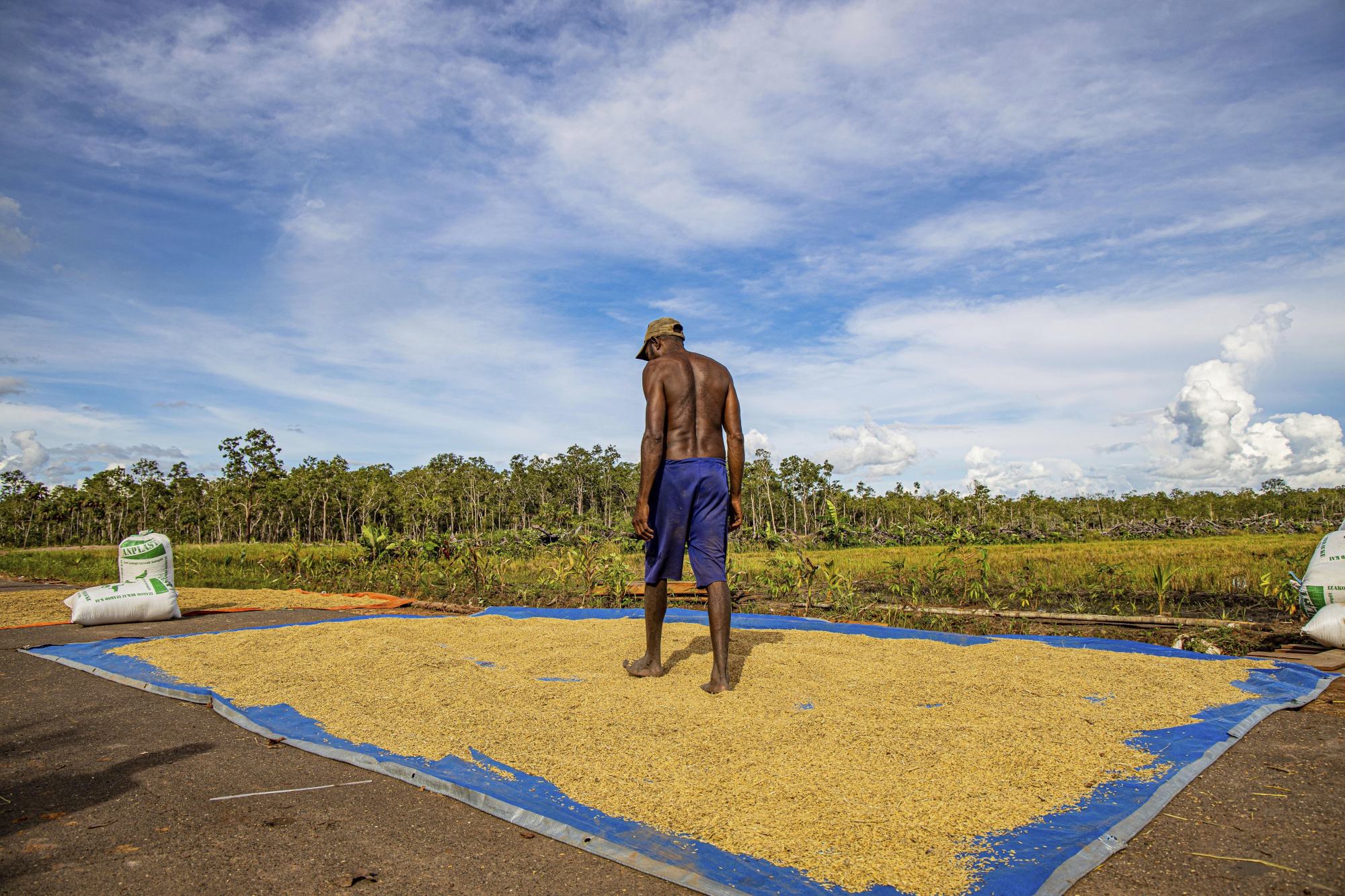Indonesia’s food estate push targets self-sufficiency amid growing concerns in Papua
Indonesia’s food self-sufficiency drive, spearheaded by President Prabowo Subianto, has raised environmental and Indigenous rights concerns

President Prabowo Subianto’s ambitious plan to boost Indonesia’s food self-sufficiency is fuelling a major expansion of agricultural projects into regions such as Papua – a strategy viewed by some as a path to greater national resilience, but which has also raised concerns among environmental organisations and advocates for Indigenous rights.
During his inaugural presidential speech in October, Prabowo said he wanted Indonesia to become a “global food estate” – a sentiment he reiterated last week when he mentioned the country would consider exporting rice.
“Previously we have been importing and importing … now we should help other countries,” he said. “We will have food self-sufficiency, we will be [the] world’s food barn.”
Home to more than 280 million people, Indonesia has long relied on food imports – particularly for staples like rice, wheat and sugar. During the last crop season, the government raised the import quota by 1.6 million tonnes because of insufficient domestic production caused by dry weather, marking its highest rice purchases since the 1997-1998 period.
However, the administration is now trying to lower imports with production recovering. Japan and Malaysia, among other countries, have shown interest in sourcing rice from Indonesia.
Analysts said that while the government is exploring export opportunities, its immediate focus remains securing stable domestic food reserves. The food estate programme – which involves creating large-scale agricultural zones – is a central component of that strategy.
Initially accelerated under former president Joko Widodo to counter global supply chain shocks during the pandemic, the scheme has designated large portions of Kalimantan and Papua for agricultural cultivation. Officials said the goal is to improve national food resilience and support rural development.

However, some environmental and civil society groups have expressed concern over the potential long-term ecological and social impact, particularly in forest-rich Papua where land rights are often contested.
Some environmental and human rights groups have voiced concern that the continued expansion of food estate programmes could contribute to significant deforestation and affect Indigenous communities that rely on forests for their livelihoods.
One project garnering attention involves plans to cultivate several million hectares of rice and sugar cane in Merauke, southern Papua – part of the broader national effort to increase agricultural output in underdeveloped regions.
According to international environmental group Mighty Earth, around 11,000 hectares (27,181 acres) have already been cleared, with the project expected to eventually cover more than 3 million hectares across Papua – making it one of the world’s largest deforestation efforts.
Experts said these corporate farms in Papua are being established to support Prabowo’s signature food and energy self-sufficiency policies but also his flagship free nutritious meal programme aimed at providing meals to nearly 83 million students, toddlers, pregnant women, and breastfeeding mothers.
Hashim Djojohadikusumo, Prabowo’s brother and Indonesia’s envoy for energy and the environment, said that the government plans to reforest 6.5 million hectares of degraded and deforested land.
“Thus, the food estate programme continues while we mitigate the possible negative impacts with new programmes, one of which is reforestation,” he said.
However, experts caution that while reforestation is necessary, it cannot replicate the ecological value of old-growth ecosystems, and that it can take decades of replanting before an area truly functions as a forest.
High rates of deforestation
Kiki Taufik, global head of Greenpeace Indonesia’s forest protection campaign, said his organisation was “deeply alarmed by the pace of deforestation and its devastating impact on Indonesia’s biodiversity and climate”.
“Indigenous lands are being seized for these plantations, with the involvement of the military via their new ‘food security’ mandate,” he said.
Kiki said the government’s aversion to “transparency” made acquiring information “difficult to obtain”. However, Greenpeace has determined that at least 10 private companies have received permits for sugar cane plantations on Indigenous land in Papua’s Merauke, with individual allocations ranging from 30,000 to 66,000 hectares.
Indonesia already has one of the highest deforestation rates globally because of mining, farming and logging operations. According to Global Forest Watch, more than 74 million hectares of rainforest in Indonesia have been lost since 1950, driven by the palm oil, paper and rubber industries.

Data from deforestation tracker TheTreeMap shows that 30,000 hectares of Indonesian forest were converted to palm oil plantations in 2024 alone.
A report by Indonesian think tank Celios found that the deforestation of even 2 million hectares in Merauke could release more than 780 million tonnes of carbon dioxide emissions, effectively derailing Jakarta’s target to become net-zero by 2050.
Fannesa Adisty Laksmita, a research officer at the Indonesia Studies Programme at ISEAS-Yusof Ishak Institute in Singapore, stressed that while a nation’s self-sufficiency in food is vital, ensuring food security is just as essential.
This includes food availability, accessibility, and meeting nutritional requirements while also recognising the diversity of staple foods.
“Achieving food security requires broader systematic interventions, including strengthening agricultural research and development, improving farm and supply chain infrastructure, and ensuring political commitment,” she said.
“Indonesia can achieve this, but it will be a long and winding road.”
Military involvement
Experts highlight the vital role forests play for Papuan Indigenous communities – not just ecologically, but also as sources of food, hunting, fishing, and cultural identity.
“Forests are not just sources of food and medicine, but also seen as a mother figure and form an integral part of their sociocultural identity, passed down through generations,” Fannesa said.
Food estates need large land areas, and their encroachment threatens Indigenous livelihoods by risking their nourishment, living space, and traditional knowledge, she added.
There are also growing concerns about the military’s extensive role in land-clearing programmes, especially following recent revisions by the Prabowo administration to military law, which signal increased involvement of the armed forces in civilian affairs.
The military plans to expand regional military commands nationwide in the coming years, and at this point, three combat battalions have been deployed to Merauke.
“Human rights activists have long warned about land grabbing and the risk of state violence,” Fannesa said.

This ongoing situation will further deepen the collective trauma experienced by Papuans, she added, noting it is also where the government’s authority faces growing challenges, with local resistance expected – particularly among Indigenous communities in Merauke.
Kiki from Greenpeace noted that communities affected by Prabowo’s food estate plans have been mobilising to defend their rights.
Hundreds of affected individuals gathered in Merauke in March, meeting with NGOs and the chair of Indonesia’s Human Rights Commission to share stories of conflict and resistance – culminating in a formal declaration demanding an end to the project. Activists said whether the government will heed these demands remains to be seen.